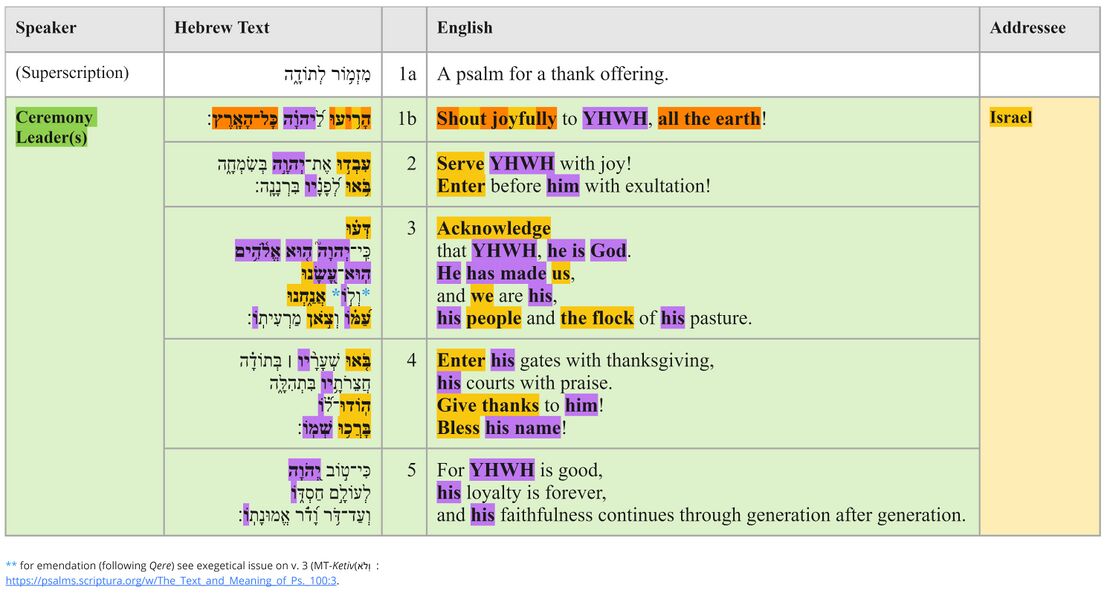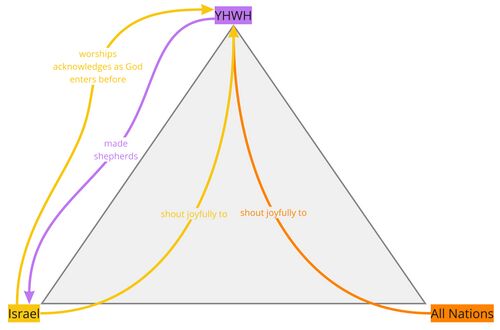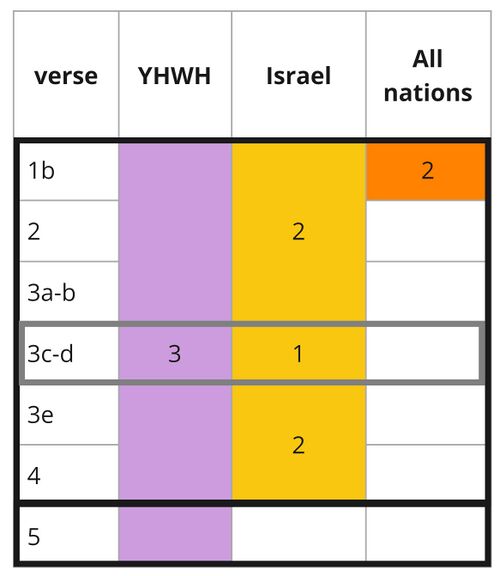Psalm 100 Participant Analysis
From Psalms: Layer by Layer
Psalm 100/Participant Analysis
Choose a Psalm Navigate Psalm 100
Participant Analysis
Participant Analysis focuses on the characters in the psalm and asks, “Who are the main participants (or characters) in this psalm, and what are they saying or doing? It is often helpful for understanding literary structure, speaker identification, etc.
For a detailed explanation of our method, see the Participant Analysis Creator Guidelines.
Psalm 100/Participant Analysis/Set
Participant Tracking Text
Tracking Notes
- v. 1b Addressee: All nations or Israel?
- The opening verse of Ps 100 creates an ambiguous tension between Israel or all nations as possible addressees.
- Israel as addressee: On the one hand, many elements of the psalm point to it being an Israelite thanksgiving ceremony, using common Israelite worship language, leading to Israel as the assumed addressee.
- All Nations as addressee: On the other the psalm opens with a vocative address to כָּל־הָאָֽרֶץ "all the earth", a term that most often refers, especially in the psalms, to all nations of the earth (e.g. Pss 96:7-9; 33:8; 98:4-6; 96:1; 66:1). It is common in the psalms to take 'all nations' as the rhetorical addressee, for example calling 'all nations' to worship YHWH (e.g. Ps 47; 66; 68:33; 96; 98; 117).
- It seems most plausible that Israel is the primary addressee, and that "all the earth" is addressed directly as a rhetorical technique to declare that YHWH is "worthy of all the earth shouting joyfully to him". However, it is possible that the psalm intentionally leaves open the possibility of reading all nations as the implied addressee all throughout.
- For detailed argumentation regarding the addressee see this exegetical issue page: The Participants of Ps. 100.
- For an exploration of the psalm's poetic tension between Israel and all nations, see Ps 100 Poetic Features.
- v. 4d "His name":
- To bless "his name" is equivalent (through metonymy) to blessing YHWH himself.





